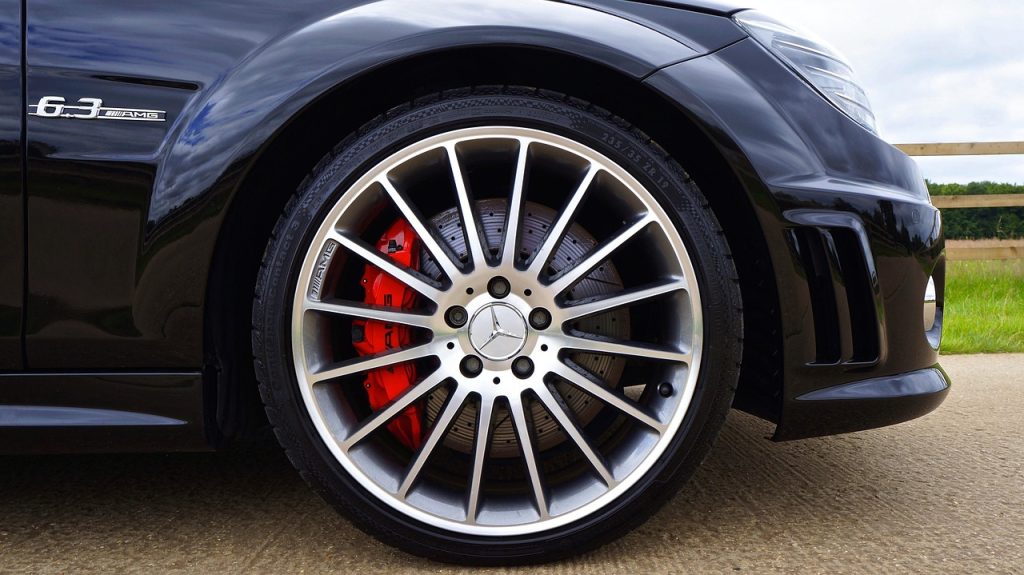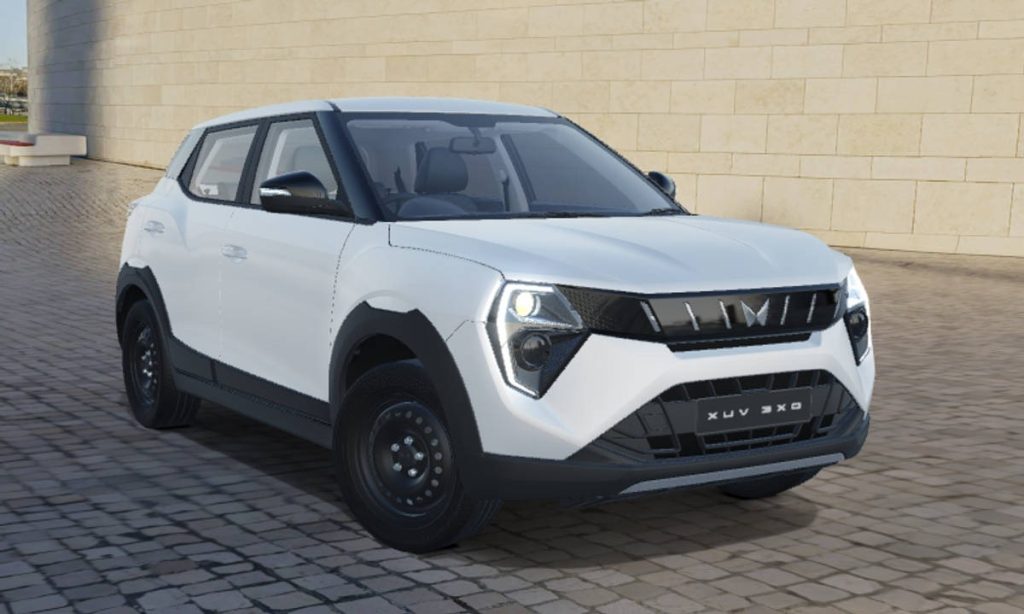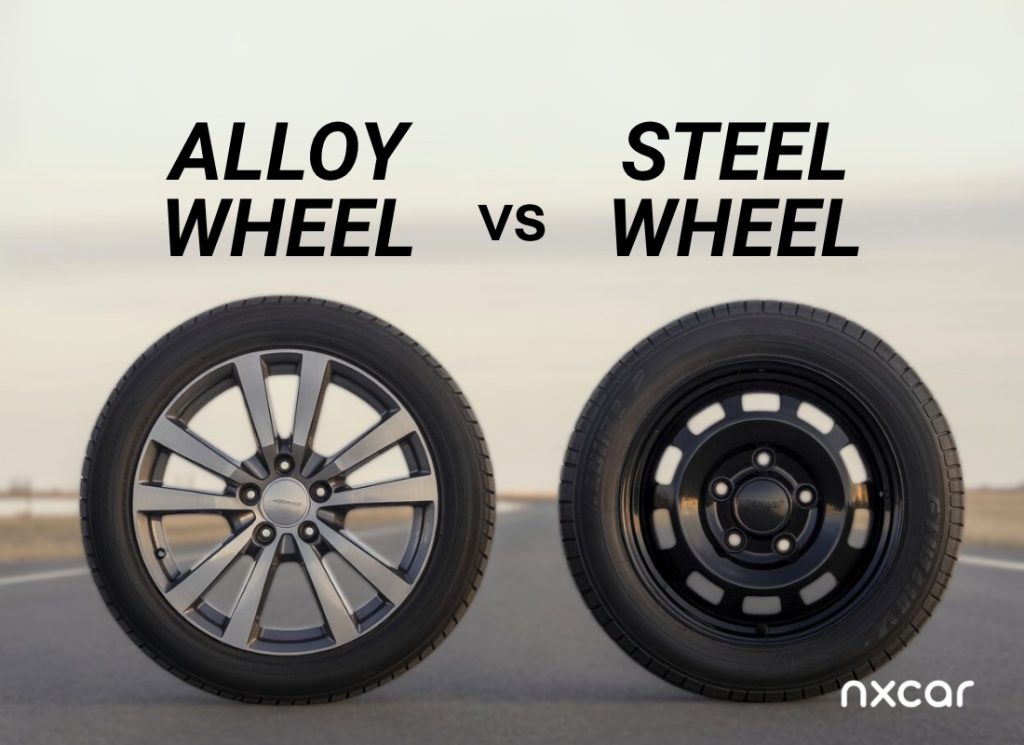In the world of automobiles, few choices stir as much silent debate as the decision between Alloy Wheels vs Steel Wheels. It’s an often-overlooked fork in the road—until you’re standing at the edge, trying to weigh aesthetics against resilience, innovation against tradition. You’ve seen those sleek, gleaming rims on a high-performance vehicle and wondered, “Are they really worth it?” At the same time, the gritty dependability of rugged steel clings to decades of tried-and-true performance. The dilemma isn’t just about looks or legacy—it’s about longevity, safety, cost, and driving experience.
But here’s the rub: most buyers walk into this decision underinformed. What starts as a simple tire upgrade turns into a maze of technical jargon, half-truths from sales reps, and conflicting opinions on forums. Missteps can lead to performance inefficiencies, unnecessary wear, or even compromised safety on rough terrains or in extreme weather. It’s not just a style choice—it’s a decision that could affect every mile of your journey.
That’s where clarity becomes power. By breaking down the core differences in Alloy Wheels vs Steel Wheels, we’ll demystify the materials, manufacturing processes, weight implications, heat conduction, and impact resistance. No more guessing. No more glossed-over specs. Just an honest, detailed comparison to help you make the right call for your lifestyle, vehicle type, and driving needs. Whether you’re navigating city streets, carving mountain switchbacks, or braving off-road paths, understanding the wheel beneath your tire is the first step to mastering the drive.
Alloy Wheels

Alloy wheels are crafted from a blend of lightweight metals—typically aluminum or magnesium—engineered for both performance and aesthetics. Unlike their heavier steel counterparts, alloy wheels boast a refined structure that enhances handling, reduces unsprung weight, and dissipates heat more efficiently. This unique metallurgical composition makes them a preferred choice for drivers seeking precision, agility, and style.
Their intricate designs aren’t just for visual flair. The manufacturing process—often involving low-pressure casting or forging—allows for more elaborate, aerodynamic shapes, which can improve airflow around the brakes. Better heat conduction reduces the risk of brake fade, especially during aggressive or prolonged driving conditions. These are not mere accessories; they’re high-functioning components built for optimal performance.
When comparing Alloy Wheels vs Steel Wheels, the contrast becomes apparent. Alloy wheels cater to those who value responsiveness and refinement, while steel wheels lean toward rugged durability and simplicity. Though they may come with a higher upfront cost, alloy wheels can offer long-term benefits in efficiency, ride comfort, and overall driving dynamics. In today’s evolving automotive landscape, the material that hugs the road can say as much about the driver as the engine under the hood.
Also Read – 7 Used Automatic Cars with Best Mileage You Can Buy in 2024
Advantages of Alloy Wheels
In the ongoing discussion of Alloy Wheels vs Steel Wheels, alloy wheels stand out for more than just their visual appeal. They offer tangible performance benefits that elevate the driving experience, particularly for those who demand more than mere utility from their vehicle.
Enhanced Performance
- Lightweight Construction: Reduced unsprung mass improves acceleration, braking response, and overall agility.
- Superior Heat Dissipation: Alloys conduct heat away from the brakes more efficiently, minimizing the risk of brake fade during high-stress driving.
Aesthetic Flexibility
- Sleek Design Options: From multi-spoke patterns to polished finishes, alloy wheels allow for creative and aerodynamic styling not achievable with traditional steel.
- Corrosion Resistance: High-quality coatings and materials resist rust, maintaining their luster over time.
Driving Comfort
- Smoother Ride Quality: Their reduced weight softens impacts and improves suspension performance, translating to a more comfortable ride.
Fuel Efficiency
- Reduced Rolling Resistance: Lighter wheels can marginally improve fuel economy, especially during urban commutes and stop-start traffic.
When evaluating Alloy Wheels vs Steel Wheels, the benefits of alloy become clear for those prioritizing precision, aesthetics, and enhanced road feel. They are not just an upgrade—they’re a statement of performance-minded intent.
Disadvantages of Alloy Wheels
While alloy wheels offer performance and elegance, they are not without limitations. When weighing Alloy Wheels vs Steel Wheels, understanding the drawbacks is essential—especially for drivers navigating rugged conditions or tight budgets.
Higher Cost
- Initial Expense: Alloy wheels typically come with a steeper price tag compared to their steel counterparts.
- Repair Complexity: Damage from potholes or curbs may require full replacement or specialized repairs, further increasing long-term costs.
Vulnerability to Damage
- Brittleness Under Impact: Unlike the malleable nature of steel, alloys can crack or fracture under high-impact stress.
- Less Forgiving Off-Road: They are not ideal for harsh terrains where durability outweighs design.
Maintenance Concerns
- Susceptibility to Scratches: The polished finishes, while stunning, are more prone to cosmetic damage.
- Corrosion Risks: If the protective coating is breached, oxidation can set in—especially in salty or coastal environments.
In the Alloy Wheels vs Steel Wheels debate, alloy wheels may not suit every driver. Their aesthetic and performance edge is undeniable, but practicality and resilience can tip the scales toward steel—especially where form must follow function.
Steel Wheels

Steel wheels are forged from pressed and welded iron-based alloys, built with durability and function in mind. Designed to endure harsh conditions, they are the workhorses of the automotive world—favored in utility vehicles, winter driving, and off-road terrain where strength outweighs sophistication.
These wheels are heavier and more rigid than their alloy counterparts, providing added mass that can help stabilize vehicles in slippery conditions. Their simplicity is their strength—literally. Constructed using a stamped metal process, steel wheels are far less prone to cracking and can absorb substantial impacts without catastrophic failure. In many cases, a bent steel rim can be hammered back into shape, something that’s rarely possible with alloy wheels.
Though not as visually captivating, their rugged nature makes them ideal for high-duty applications. They also tend to be more cost-effective, both in initial purchase and repair.
When exploring Alloy Wheels vs Steel Wheels, the distinction lies in purpose. Steel wheels serve those who prioritize reliability and resilience over aesthetics and agility. They’re built for adverse environments, rough roads, and practical demands—a reminder that sometimes, substance takes precedence over style.
Also Read – Hybrid vs Electric Car Comparison: Which is Best for You?
Advantages of Steel Wheels
In the long-standing comparison of Alloy Wheels vs Steel Wheels, steel wheels hold their ground with quiet confidence. Built for endurance and simplicity, they excel in demanding environments where rugged performance matters more than refined aesthetics.
Exceptional Durability
- High Impact Resistance: Steel wheels can absorb significant shocks without cracking—ideal for pothole-ridden roads and off-road escapades.
- Structural Toughness: Their malleable construction allows for easy reshaping if bent, often avoiding total replacement.
Cost Efficiency
- Lower Upfront Cost: Generally more affordable than alloy alternatives, making them a go-to for fleet vehicles and budget-conscious drivers.
- Economical Repairs: Minor deformations can often be corrected with basic tools, reducing long-term maintenance expenses.
Winter-Ready Performance
- Better for Harsh Conditions: Heavier mass adds traction on icy roads, and their basic finish is less susceptible to winter salt corrosion.
- No-Frills Practicality: Function over form ensures reliability in snow, slush, and mud without worrying about cosmetic wear.
In the ongoing Alloy Wheels vs Steel Wheels dialogue, steel wheels emerge as the pragmatic choice for those who prioritize strength, economy, and dependable performance under duress. They may lack the flair, but never the fortitude.
Disadvantages of Steel Wheels
Steel wheels may be built to endure, but they come with compromises that can’t be ignored. In the ongoing comparison of Alloy Wheels vs Steel Wheels, these drawbacks play a significant role—particularly for those who value performance, efficiency, and visual appeal.
Heavier Weight
- Increased Unsprung Mass: The added bulk can negatively impact acceleration, braking, and fuel economy.
- Sluggish Handling: Heavier wheels dull the vehicle’s responsiveness, especially noticeable in sharp turns or spirited driving.
Aesthetic Limitations
- Basic, Industrial Look: Steel wheels often lack design flair, appearing utilitarian and outdated when compared to modern alloy designs.
- Limited Customization: Few style options are available, which may not satisfy drivers seeking a personalized or upscale appearance.
Corrosion Potential
- Rust-Prone Finish: Over time, exposure to moisture and road salt can lead to visible rust, especially if the protective paint chips.
- More Frequent Maintenance: Regular touch-ups may be needed to maintain structural integrity and visual cleanliness.
In the broader Alloy Wheels vs Steel Wheels conversation, steel wheels serve a clear function—but not without trade-offs. For those craving refinement and responsiveness, the limitations of steel may be too weighty to overlook.
FAQ
Why Are Alloy Wheels Offered Only in the Top Variants of Most Cars?
Alloy wheels are often reserved for higher trims due to their premium positioning and manufacturing complexity. They enhance both aesthetics and performance, making them a natural fit for top-tier models where luxury and refinement are prioritized. In the Alloy Wheels vs Steel Wheels comparison, alloys signal exclusivity—lightweight, stylish, and engineered for enhanced ride dynamics. Automakers use them to distinguish upscale variants, aligning with features like chrome accents, LED lighting, and advanced infotainment. Their higher production cost also justifies placement in pricier trims, reinforcing the allure of premium craftsmanship and elevated driving experience.
Which Is Better?
The answer to the Alloy Wheels vs Steel Wheels debate isn’t universal—it hinges on individual priorities. For those who crave precision handling, modern aesthetics, and enhanced heat dissipation, alloy wheels are the clear frontrunner. Their lightweight construction translates to sharper agility and marginal gains in fuel efficiency.
Conversely, steel wheels offer a no-nonsense approach. They shine in environments where resilience, cost-effectiveness, and easy reparability matter more than design. Ideal for winter driving and rugged terrain, they embrace function over finesse.
Ultimately, Alloy Wheels vs Steel Wheels is not about superiority—it’s about suitability. The better choice depends on how and where you drive.
Which Is Stronger?
In the strength showdown of Alloy Wheels vs Steel Wheels, steel takes the crown for raw durability. Forged from dense, malleable metal, steel wheels can absorb substantial impacts without cracking—ideal for punishing road conditions and off-road use. Alloy wheels, though rigid and lightweight, are more prone to fracturing under high stress. While alloys offer precision, steel delivers resilience. Bent steel rims can often be reshaped; cracked alloys usually require full replacement. When brute strength is the benchmark, especially in utilitarian or winter settings, steel wheels remain the undisputed champions of structural toughness.
Why Lower Variants Come with Steel Wheels
Lower variants are designed with cost-efficiency and practicality in mind. Steel wheels, being more economical to produce and easier to repair, align perfectly with this objective. In the context of Alloy Wheels vs Steel Wheels, manufacturers often reserve alloys for higher trims to differentiate luxury from utility. Steel wheels also offer greater resistance to rough usage, making them ideal for entry-level buyers who prioritize function over flair. Their simpler design and durability ensure affordability without compromising structural reliability. It’s a calculated trade-off—robustness over refinement, value over vanity.
Repairability
In the realm of Alloy Wheels vs Steel Wheels, repairability is a key differentiator. Steel wheels are notably more forgiving. A bent rim can often be hammered back into shape with basic tools—quick, affordable, and effective. Alloy wheels, by contrast, are less accommodating. Though some minor curb rash or scratches can be refinished, a cracked or severely deformed alloy typically demands full replacement. Their complex structure and brittleness under stress make repairs costly and less feasible. For drivers navigating unpredictable terrain or tight urban corners, steel wheels offer a practical edge in long-term maintainability and resilience.
Should You Get Aftermarket Alloy Wheels?
Aftermarket alloy wheels can dramatically enhance a vehicle’s stance, handling, and personality. They offer an array of designs, finishes, and weight profiles unavailable in factory options. However, quality is paramount. Low-grade alloys may compromise safety, especially when compared in the Alloy Wheels vs Steel Wheels equation. Improper sizing or inferior construction can affect alignment, braking, and suspension wear. It’s essential to choose wheels that meet OEM standards or exceed them. When selected wisely, aftermarket alloys can elevate both performance and aesthetics—blending form with function in a way that transforms the everyday drive into something uniquely personal.
Conclusion
The debate of Alloy Wheels vs Steel Wheels is not about one being universally superior—it’s about alignment with purpose. Alloy wheels bring finesse, agility, and modern appeal to the table, perfect for urban cruisers and enthusiasts alike. Steel wheels, on the other hand, offer uncompromising durability, budget-friendliness, and year-round reliability. Choosing between them requires an honest look at your driving conditions, priorities, and long-term expectations. Whether you’re drawn to the polished performance of alloys or the steadfast grit of steel, the right wheel will support not just your car, but the journey you’re crafting with it.




